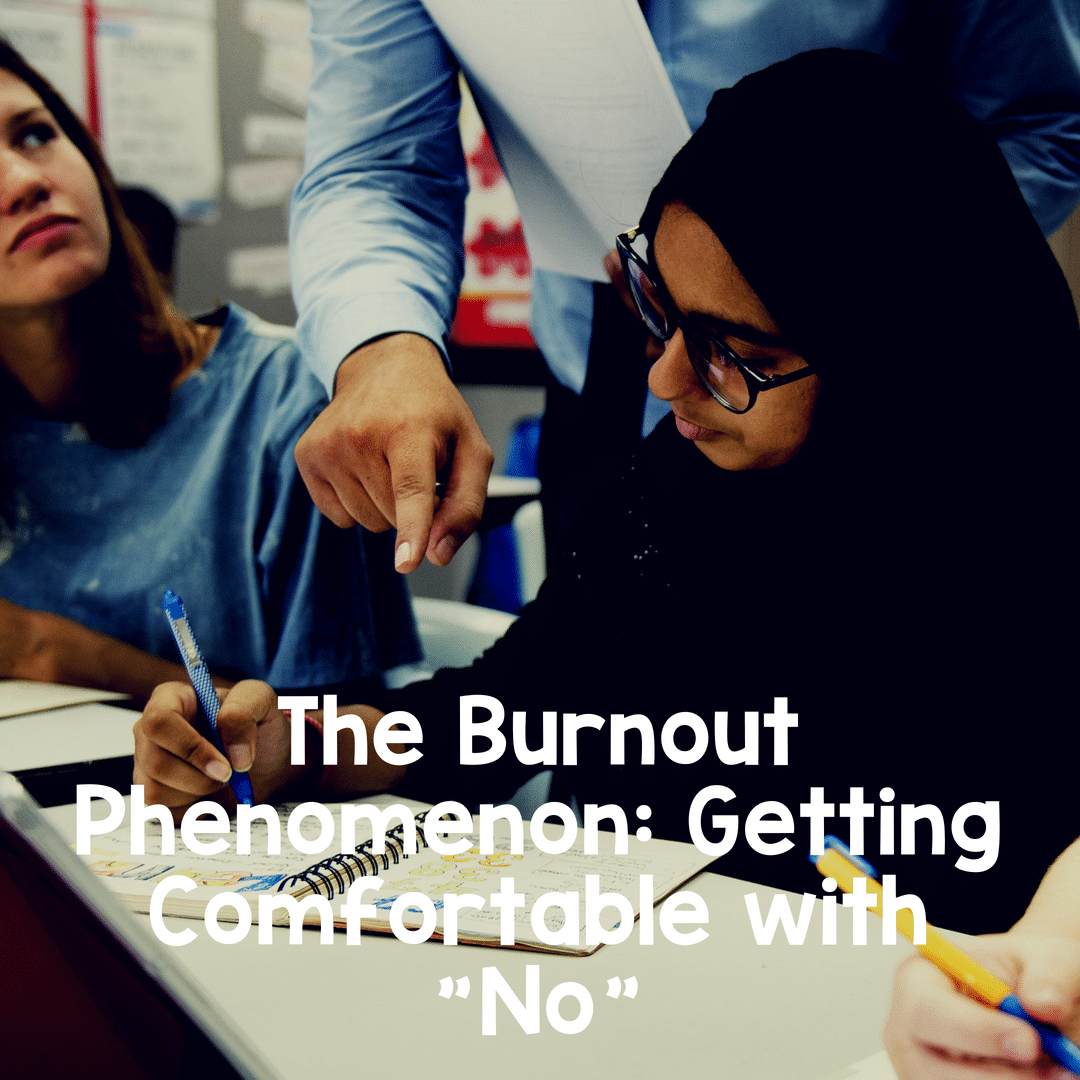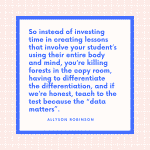In the last few weeks, a colleague and I have been discussing some recent feelings of burnout and exhaustion that we both share. As we delved deeper, we both came to the conclusion that in our personal and professional lives, at the moment, we’ve “bitten off more than we could chew”. We have taken on more than what we were capable of, and despite our recognition of that fact, we continued to repeat the same cycle over and over and over again.
After speaking with my colleague, I reached out to other women, mostly friends and family, about this feeling. Was this something that is widespread, outside of those of us who work in education? The answer, I found, was yes. Nearly all of the women I spoke to had a feeling of being overwhelmed and exhausted. It wasn’t simply the professional commitments that they had taken on that contributed to this feeling. It was the personal ones also.
[bctt tweet=”Nearly all of the women I spoke to had a feeling of being overwhelmed and exhausted.” username=””]
So often, I’ve felt that if I can cram something into my schedule, that must mean that I am capable of “doing it”. If it fits into a slot on my google calendar, then I have no “good” reason to say “no”, right? That’s what I’ve felt and what so many others are feeling, as well. What this comes down to, I think, is the fact that we consider our commitments in terms of only physical and measurable time, rather than the mental and emotional toll that often comes with it.
Modern Society and the “Burnout” Phenomenon
When I look back at my initial statements. I felt that saying “I am mentally exhausted” was not a valid reason to say “no”. So, I decided to dig a little bit deeper into that construct. As has been discussed in countless posts in The Educator’s Room and elsewhere, self-care and mental health are incredibly important to one’s overall well-being. Still, despite the conversations that are being had, we, as individuals, are so hardwired to think that self-care is in fact, selfish and unnecessary or that the feeling of being overwhelmed can simply be remedied with better planning and time management. While in some cases, planning and time-management may be viable solutions, that is not always the case.
In 2016, BBC published an article, The reasons why exhaustion and burnout are so common. In the article, it was stated that “our brains are simply ill evolved to deal with the modern working environment. The increasing emphasis on productivity – and the emotional need to prove one’s worth through one’s job – leaves workers in a permanent state of ‘fight or flight’.” The fact that we have the ability to be connected at all times has caused a shift in the work-life balance that existed before the age of the smartphone and VPN’s. Now, I often find myself awake at night, checking my email in bed, nervous that I might miss something “important” that requires an immediate response.
In the age of “instant gratification”, I’ve found that students, parents, clients, etc., are less patient. And, because they know that you are connected, they typically expect a response immediately. Case in point, my job requires that I provide my personal number to students, in case they need help. I’ve tried to maintain boundaries. However, each semester, I always have a handful of students who call over the weekend or at 11 or 12 at night, regarding issues that do not necessarily require immediate attention.
Employers, too, often expect employees to stay connected while on vacation or out sick. Friends and colleagues of mine, across fields, say that their employers expect them to check emails while away. A 2015 study by Jennifer J. Deal, “Always on, Never done“, confirms this, where it is reported that most people who use their smartphones for work purposes are putting in around 13 hours a day, regularly. In 2014, also, Forbes reported that 42% of employees feel “obligated” to stay connected while on vacation, and 26% even feel “guilty” for using vacation time.
While part of the problem lies within workplace culture, some of it lies within ourselves as well. Because, rather than unplug over our vacations or evenings, we feed into this model by keeping connected. Therefore, we maintain the status quo.
Getting Comfortable with “No”
So, the question persists: how can we learn to say no more comfortably? I’ll admit, as a person who regularly feels “burnt out”, I’m likely not the best person to give this advice. Or maybe I just need to start practicing what I preach!
[bctt tweet=”How can we learn to say no more comfortably?” username=””]
It can be hard to say “no”, in the moment, especially if you are face to face with someone. Incidentally, if you respond with a solid “no” too quickly, it could be damaging to the relationship. Sometimes, it helps to let the person know that you’ll get back to them. That way it gives you time to step back and assess whether or not this commitment is something that you can take on. In addition, rather than saying a flat out “no”, especially to a friend or family member, make a suggestion. For instance, if you aren’t able to travel up to your parent’s this weekend, suggest another that might work better.
Finally, we need to stop thinking of our burnout or exhaustion as an invalid excuse. In fact, you don’t need to offer an “excuse” or reasoning at all. It could be simply said, “that doesn’t work for me right now” or “unfortunately, I can’t do that”. It’s been seared into our heads that if we say “no” we need to offer an explanation. And, that the explanation needs to fit certain parameters to be acceptable.
We need to remember that our health is important. And, these feelings of exhaustion and burnout can be very damaging over time. Mental and emotional health is just as important to our well-being as physical and anatomical health. So, try your best to carve out some time for yourself this week and say “no”.






